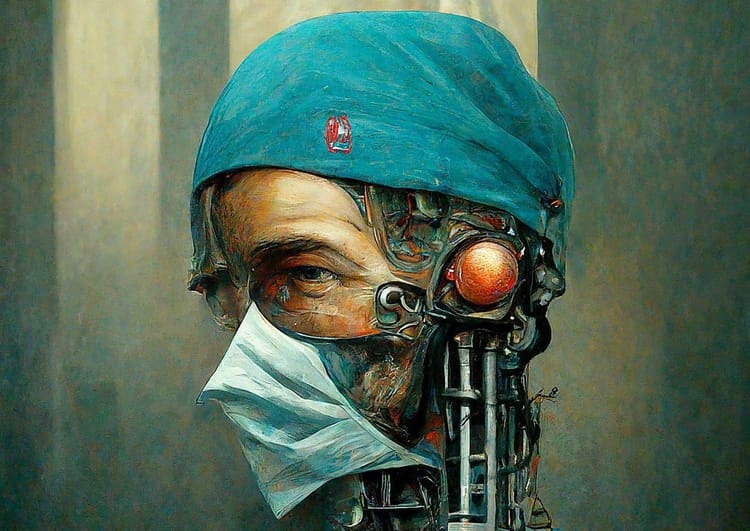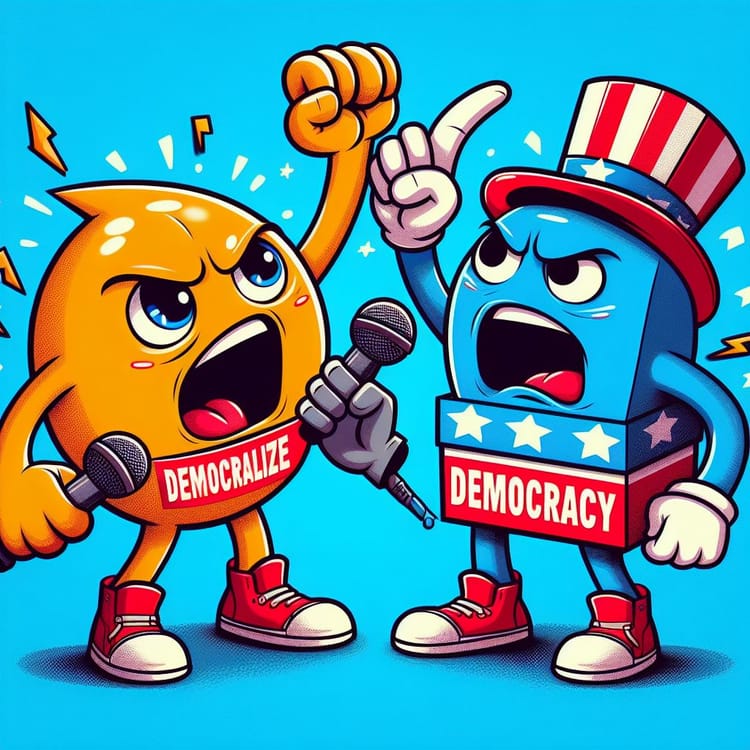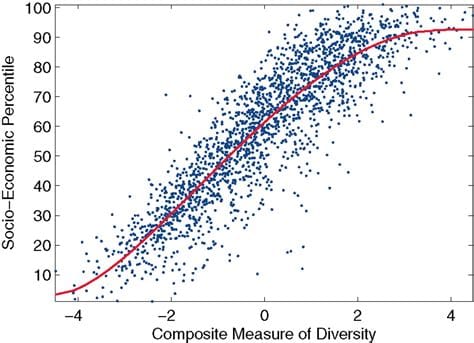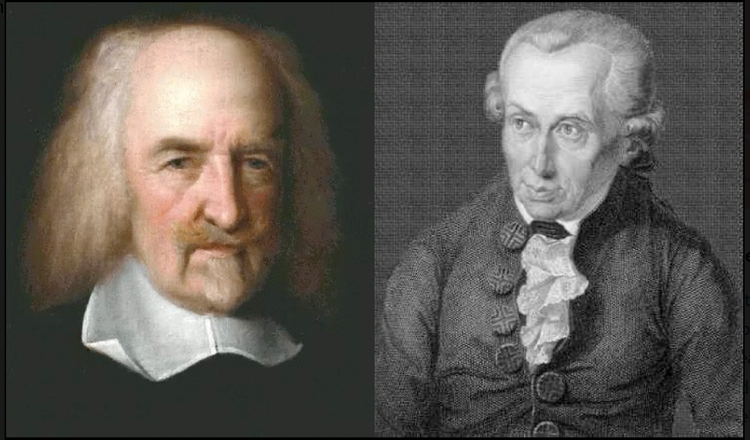Noblesse Oblige

This week's Socos Academy looks at the hardest rung of the socioeconomic ladder: the top.
Mad Science Solves...
Andrew Carnegie founded the Carnegie Steel Company, which he later sold to JP Morgan for roughly $6 billion. With that fortune he went on to found Carnegie Libraries throughout America and the world with a mission to bring literacy and his childhood love of reading to everyone. He founded Carnegie Hall, the Carnegie Corporation of New York, the Carnegie Endowment for International Peace, and the Carnegie Hero Fund. His largess has directly affected my life as that fortune endowed Carnegie Mellon, where my wife and I met earning our PhDs, and the Carnegie Foundation for the Advancement of Teaching, where my wife now works.
His success is all the more astonishing given that his family was forced to leave Scotland in search of work. Andrew's first job was as a child, 12 hours a day, 6 hours a week, changing bobbins of thread in cotton mills. Children were preferred for the work because their small fingers fix better inside the machinery. Though he had the benefit of an educated family and access to books, his rise from bobbin boy to richest philanthropist in the world was astonishing. It is the essence of the effective altruism story: get rich then put that money to work bettering the world.
But in between bobbin boy and philanthropist was a life spent extracting money from workers, customers, investors, and society by often brutal and, in modern terms, illegal means. After catching the eye of a railroad executive, he participated in insider trading schemes. He continued to leverage his close relationships with railroad executives when he began his first steel company, ensuring railroad contracts for the bridge and rails supplies they needed. He manipulated markets, bought out competitors, and, when workers demanded humane conditions in 1892, looked the other way as his manager, Henry Clay Frick, brutally broke the strike, killing 10.
Does the "get rich and do good" ethos truly read "get rich by any means necessary"? Do these practices lead to a better world, or might the insider trading, company stores, and labor exploitation have slowed economic and human development more than his later philanthropy raised it?
One practice of Carnegie is of particular note to me, one that is still at play today: kinship-based society. Many of the wealthiest individuals in the world today preach open markets while conducting business based on relationships, as Carnegie did throughout his career. Research on market-based vs kinship-based societies find numerous advantages in both economic and human development through open, inclusive markets compared with economies based on familial ties or other close relationships. This large body of research strongly argues that societies would be much better off without the economic drag of secret business deals between wealthy friends, even if they later give it all away.
Stage & Screen
Dr. Ming will currently be speaking in and around London November 13-17, and NYC from November 30 - December 7. If you have events, opportunities, or would be interested in hosting a dinner or other event with her, please let us know. We're currently reviewing invitations and can be flexible on fees for paid events for these markets and all 2023 dates!
Research Roundup
Rich kids finally catch a break
With all of the attention paid to Harvard and the Supreme Court’s decision on racial preferences, a small reminder of the insanity of focusing on a handful of kids of Black and Asain kids (all with amazing applications) rather the the real issues comes from Raj Chetty and colleagues: Diversifying Society’s Leaders? The Causal Effects of Admission to Highly Selective Private Colleges.
By linking admissions data to tax returns (who would have guessed that founding a tax startup might pave the way to a potential Nobel Prize?), the research revealed the entirely unsurprising truth: “Children from families in the top 1% are more than twice as likely to attend an Ivy-Plus…as those from middle-class families with comparable SAT/ACT scores.”
Kids from rich and powerful families are both more likely to apply and be admitted to elite private universities than their academic peers, but the advantage vanishes at elite public universities. The scales are tipped in favor of the dark triad: legacy admissions, non-academic credentials, and athletics (you know, the famous ones: lacrosse, crew, sailing).
The findings don’t stop there. These admission preferences have impacts that reverberate long after graduation. Ivy+ alums are 60% more likely to join the top 1% in earnings, are twice as likely to attend an elite graduate school, and 3x as likely to join a “prestigious firm”.
Lest you mistake these outcomes for just rewards, the research also reveals that those “3 key factors”—legacy, athletics, and non-academic credentials—”are uncorrelated or negatively correlated with post-college outcomes”. Harvard is a ticket to a better life, but for the elite those tickets are paid for with counterfeit money.
One last note: while legacies and lacrosse don’t predict university success, “SAT/ACT scores and academic credentials are highly predictive”. Though I’m often critical of standardized assessments, I am not at all surprised by their predictive validity here. If the only information I had was test scores and whether your dad donated money to the school, those scores will surely offer substantive insights about you. I still argue, however, that they are just a proxy for the deeper character and qualities of a person that drive their long term outcomes: meta-learning, the ability to learn how to learn.
P.s., My wife and I ran some statistics on the admissions data used in the Supreme Court arguments. The two sides argued past each other over whether test scores alone or the inclusion of other factors are valid admissions criteria. What we found is that all racial groups were being “discriminated” against. East and South Asian applicants were more likely to be admitted based on test scores alone than an anonymous model application. Black students were more likely to be admitted based on nonacademic factors. This implies that Harvard was shifting their standards to fit stereotyped cultural standards. It also implies that these standards discriminated against applicants—bookish Black kids and bootstrapped Vietnamese students—that violated these stereotypes.
Some Sympathy Please!
I’ve read so many opinion pieces of late vilifying CEOs, from earning hundreds times their median worker to stories of arrogant authoritarians. Having been a CEO once or twice, I’d like to offer a note of sympathy for these titans of industry: it takes a toll.
There have been a number of papers showing that individuals in high power positions are less able to take other’s perspectives. They are worse at “taking into account that other people did not possess their privileged knowledge” (like an infant). They are even worse at reading emotional expressions in others. And the effects get worse the greater the difference in power.
One body of research traces this deficit into the brain. High-power individuals show lower levels of motor cortex mirroring of other people, suggesting reduced embodied empathy toward others as measured in sociocognitive networks.
These sorts of deficits in social cognition and self-awareness are reflected in activity in specific “paralimbic network…‘hubs’”. The longer you’ve been a CEO, the more activity in these hubs decline, almost as though these regions have been starved of oxygen.
So rather than vilifying CEOs, show some sympathy. Who knew that being a CEO was in fact a degenerative brain disease?
The only treatment is honest feedback willingly accepted.
| Follow more of my work at | |
|---|---|
| Socos Labs | The Human Trust |
| Dionysus Health | Optoceutics |
| RFK Human Rights | GenderCool |
| Crisis Venture Studios | Inclusion Impact Index |
| Neurotech Collider Hub at UC Berkeley |




